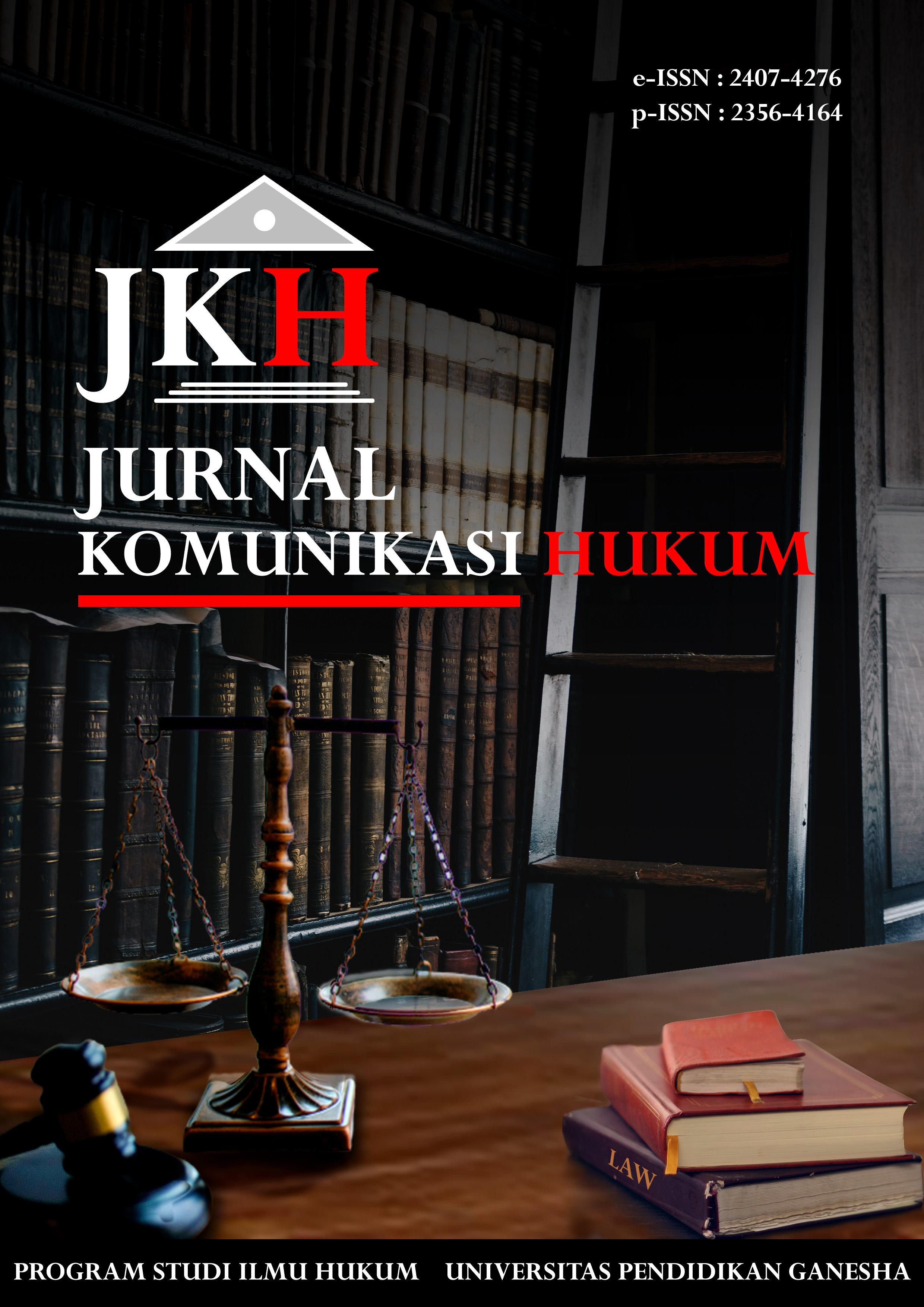Community Based Tourism dalam Menyongsong New Normal Desa Wisata Bali
DOI:
https://doi.org/10.23887/jkh.v7i1.31458Keywords:
Tourism, Tourism Village, Government, Community Based TourismAbstract
This research is entitled "Community Based Tourism in Welcoming the New Normal Tourism Village in Bali Province". This research was motivated by the economic crisis that occurred in Bali Province, due to the outbreak of the corona virus. For the Province of Bali, tourism is the leading sector of the Balinese economy because the majority of Balinese people depend on the tourism industry directly or indirectly. The outbreak of the corona virus throughout the world has caused countries in the world to implement various policies to limit the space for their people, which have implications for the decline in tourism activities in Bali. Bali has 116 Tourism Villages which are now excellent tourist destinations amid the Covid- 19 pandemic. Tourist villages offer natural beauty more ideally visited in the midst of the Covid-19 pandemic compared to other tourist destinations. However, it turns out that until now the local government of the province of Bali has not had a norm in the formation of a tourist village, which implies difficulties in developing a Tourism Village, so it is necessary to construct norms that specifically regulate tourism villages by implementing the concept of community based tourism that promotes community participation. The formulation of the problem in this study, namely; 1. What is the authority of the Regional Government in developing the Tourism Village in Bali Province? 2. How is the development of a tourism village based on the concept of community based tourism in welcoming the new normal of Bali tourism? In this study, it is known that the local government of the province of Bali has the authority to construct tourism village norms as a guideline for organizing tourist villages in Bali Province. The provincial government of Bali is expected to form a Regional Regulation as a guideline for regencies / cities in developing tourist villages so that they can realize the tourism implementation objectives contained in article 4 of Law no. 10 of 2009 concerning Tourism.
Downloads
Published
How to Cite
Issue
Section
License
Authors who publish with this journal agree to the following terms:- Authors retain copyright and grant the journal right of first publication with the work simultaneously licensed under a Creative Commons Attribution License that allows others to share the work with an acknowledgement of the work's authorship and initial publication in this journal.
- Authors are able to enter into separate, additional contractual arrangements for the non-exclusive distribution of the journal's published version of the work (e.g., post it to an institutional repository or publish it in a book), with an acknowledgement of its initial publication in this journal.
- Authors are permitted and encouraged to post their work online (e.g., in institutional repositories or on their website) prior to and during the submission process, as it can lead to productive exchanges, as well as earlier and greater citation of published work (See The Effect of Open Access).
Authors who publish with this journal agree to the following terms:
- Authors retain copyright and grant the journal right of first publication, with the work [SPECIFY PERIOD OF TIME] after publication simultaneously licensed under aCreative Commons Attribution License that allows others to share the work with an acknowledgement of the work's authorship and initial publication in this journal.
- Authors are able to enter into separate, additional contractual arrangements for the non-exclusive distribution of the journal's published version of the work (e.g., post it to an institutional repository or publish it in a book), with an acknowledgement of its initial publication in this journal.
- Authors are permitted and encouraged to post their work online (e.g., in institutional repositories or on their website) prior to and during the submission process, as it can lead to productive exchanges, as well as earlier and greater citation of published work (See The Effect of Open Access).












